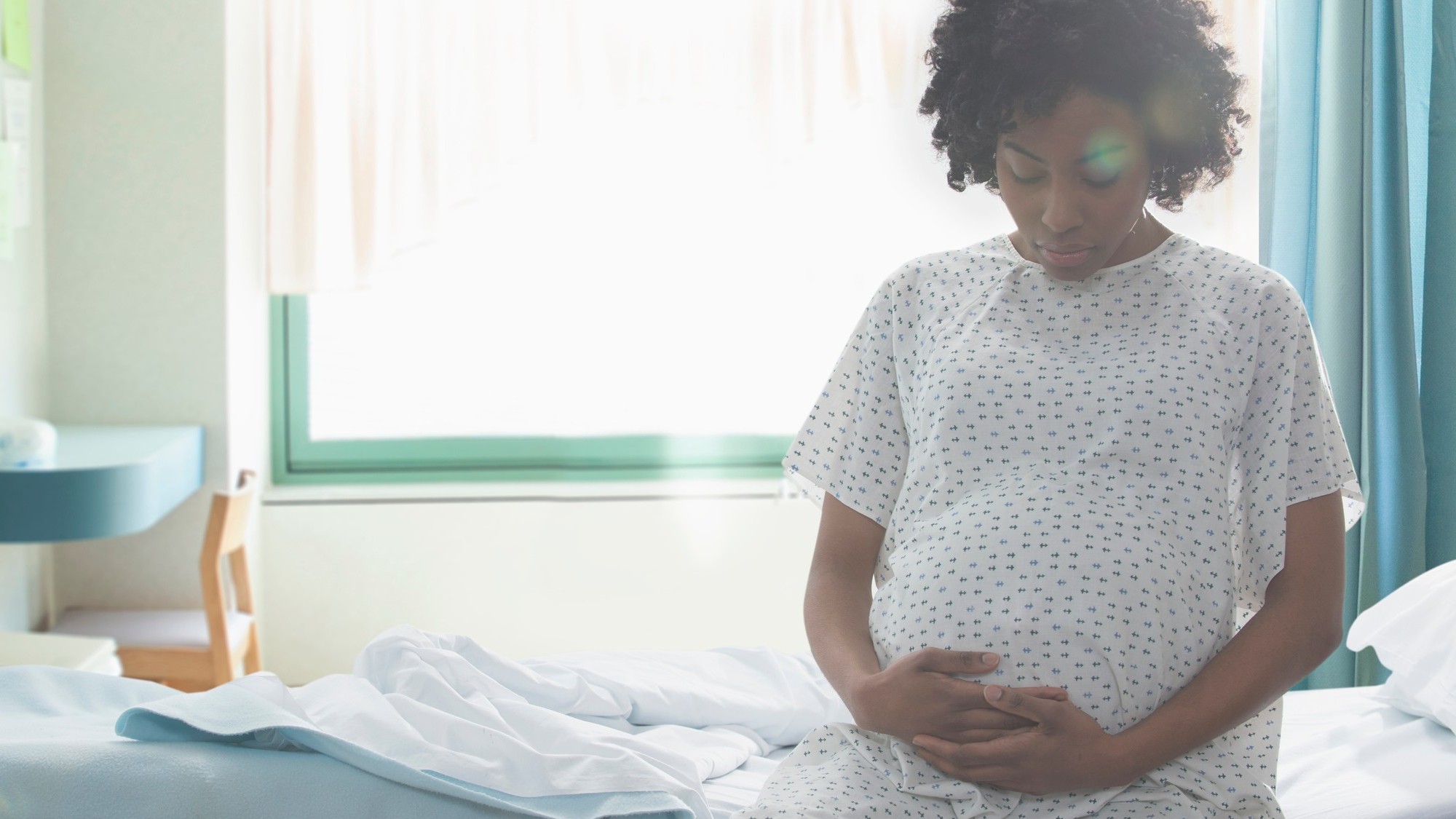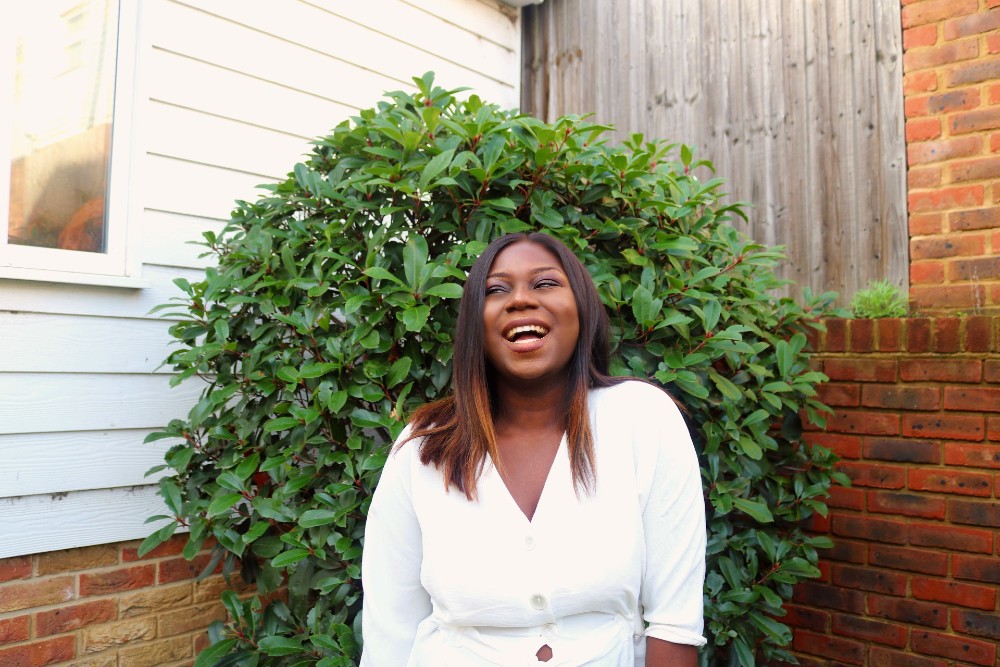Why is maternity care still failing non-white women?
An inquiry into racial injustice in maternity care is gathering shocking evidence from new parents about their experience of pregnancy, birth and postnatal care in the UK. Hannah Summers reports

An inquiry into racial injustice in maternity care is gathering shocking evidence from new parents about their experience of pregnancy, birth and postnatal care in the UK. Hannah Summers reports
It has been repeatedly shown that Black, Asian and mixed ethnicity women are more likely to die, experience baby loss or become seriously unwell during pregnancy and childbirth compared to white women experiencing maternity care. Data published earlier this year by MBRRACE-UK shows Black women are four times more likely than white women to die in pregnancy or childbirth in the UK while women from Asian ethnic backgrounds face twice the risk.
“In addition to these stark statistics there are concerns about a higher rate of maternal illness, worse experiences of maternity care and the fact Black and Asian women are far more likely to be admitted to hospital with Covid-19,” says Shaheen Rahman QC, the barrister who will lead an expert panel convened by the organisation, Birthrights.
Amy Gibbs, the charity’s CEO, says the inquiry will use a human rights lens to investigate the different ways people can be discriminated against due to their race and to identify ways this inequality can be redressed. “The evidence shows significant racial inequalities in maternal and newborn deaths," says Gibbs. "But these headline figures mask other harmful outcomes from explicit racism to bias, microaggressions and a lack of basic dignity and respect.”
Racism and the NHS
The inquiry comes as Parliament debated the racial disparity in maternal mortality on April 19, after a petition from the campaign group Five X More gathered 187,519 signatures. “Our inquiry will take as the starting point that racism exists in our society so it must exist in the NHS,” says Gibbs. “We want to understand what that looks like for different ethnic groups.”
During an exhausting 48-hour labour with her first baby, Tricia Boahene was initially denied an epidural despite telling her midwife she was in agonising pain. “My expressions of pain and exhaustion were diminished with remarks about how I didn’t look like I was in pain and how a girl like me should be stronger,” she recalls. “I was begging for an epidural and shaking with the effort of trying not to push… but I was told ‘people like me’ don’t need epidurals.”
Eventually she was given the regional anaesthetic and delivered without any complications. “When I got my first midwife back she was appalled I had been left to struggle like that.” Boahene, who is Black, says she believes the way she was treated was linked to her race. “The use of terminology ‘like you’ felt racial,” she said.
Marie Claire Newsletter
Celebrity news, beauty, fashion advice, and fascinating features, delivered straight to your inbox!
In pain and ignored
Sandra Igwe set up a social enterprise called Motherhood Group to amplify the voices of Black mothers after the discrimination she experienced during her own pregnancy and birth left her suffering from postnatal depression. She says medical staff repeatedly dismissed her concerns when she went into labour in March 2016.
“They would not believe I was in active labour,” she recalls. “The midwife said my cries of pain did not coincide with my contractions and they withheld an epidural for hours on end. The midwife was trying to gaslight me, it was horrific. They kept asking ‘why are you screaming?’ and said I was being ‘rude’.”

It was only when her baby’s heart rate dropped and she started being sick that hospital staff took her seriously. The same trust had already issued a letter of apology following an incident of alleged racism during one of Igwe’s antenatal appointments.
“Racism in maternity care in the UK is insidious and because it is covert and subtle it’s hard to describe how you are feeling,” says Igwe. “The strong Black woman stereotype is killing us. We should be allowed to be vulnerable and scream in pain.”
She worries too many mothers have postnatal depression which is going undiagnosed. “Black mothers do not trust the healthcare system and they are not seeking out support because when we do we are dismissed and ignored and the information we share is weaponised against us.”
Working on improving care
Now Igwe will co-chair the Birthrights inquiry alongside a panel of experts including lawyers, obstetricians, midwives, doulas and people from different ethnic backgrounds with a variety of lived experience. Benash Nazmeen, co-chair alongside Igwe, and director of the Association of South Asian Midwives, says while the feedback so far was very concerning there are also positives.
“Even those with very traumatic births identified at least one professional who was ‘amazing’ – whether a community midwife, health visitor or doctor. This shows good, compassionate, culturally sensitive care is possible,” says Nazmeen. "If you are currently pregnant, please know that the NHS is aware of racial inequities and working to improve care - if you’re concerned, ask your local services what they are doing to address this, so you can be reassured.”
The NHS said it was taking action to level up health outcomes for mothers and their babies from Black, Asian and mixed ethnicity groups through a range of initiatives including the Maternity Voices Partnership which gives new parents the chance to have their views heard directly by local maternity leaders.
Last June, England’s most senior midwife, Jacqueline Dunkley-Bent wrote to all maternity units in the country calling on them to undertake a series of specific actions to minimise the additional risk of Covid-19 for women from Black, Asian and minority ethnic backgrounds and their babies.
Responding to the recent feedback given to the Birthrights inquiry she said the NHS was one of the safest places in the world to have a baby but that any woman who has a poor experience of maternity care is one too many.
Dunkley-Bent added: “We continue to tackle poorer outcomes for women from ethnic minority backgrounds and those who live in the most deprived areas – including fast-tracking our continuity of care programme for these groups which will mean women receive care from the same midwife and team before, during and after they give birth, which we know improves experiences and outcomes.”
The leading destination for fashion, beauty, shopping and finger-on-the-pulse views on the latest issues. Marie Claire's travel content helps you delight in discovering new destinations around the globe, offering a unique – and sometimes unchartered – travel experience. From new hotel openings to the destinations tipped to take over our travel calendars, this iconic name has it covered.
-
 Style Briefing: Matthieu Blazy's last hurrah
Style Briefing: Matthieu Blazy's last hurrahHow the designer delivered a fresh perspective while also honouring its history of craft and creativity
By Rebecca Jane Hill
-
 The Emily in Paris cast has spoken out as one of its stars officially quits the show
The Emily in Paris cast has spoken out as one of its stars officially quits the showBy Jenny Proudfoot
-
 Timothée Chalamet’s mother has opened up about his relationship with Kylie Jenner
Timothée Chalamet’s mother has opened up about his relationship with Kylie JennerBy Jenny Proudfoot